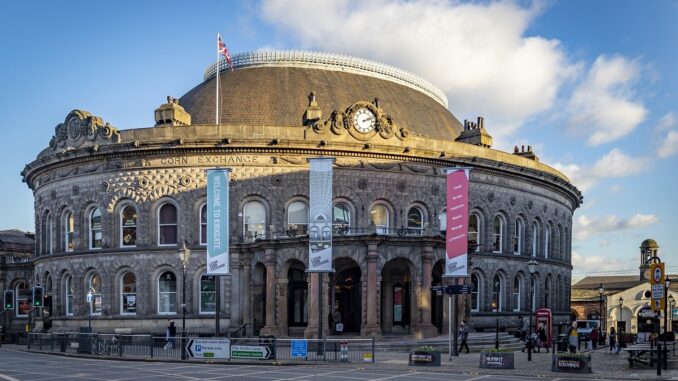
Mark Nicholls explores Leeds on foot by joining beer and brunch walking tours for a tasty perspective of the city.
In the quintessentially British film Bank of Dave the main protagonist, a self-made northern businessman, belts out Def Leppard classics at a karaoke night in his local pub.
This is Dave Fishwick, portrayed by actor Rory Kinnear, and is based on his real-life endeavours to establish a bank to benefit local businesses and the wider community in Burnley.
We see Dave in his element, in the Duck & Drake, on several occasions.
Yet while the screenplay closely follows Dave’s story as he takes on London’s elite financial institutions and competes for the first banking licence in over 100 years, the Duck & Drake in the film is not actually the one he frequents in his native Lancashire.
Duck & Drake
I discover this fact on a walking tour of Leeds, taking in locations of pubs and breweries synonymous with this Yorkshire city.
My guide, Mike Hampshire, pushes open the door of a very traditional red-brick pub on Kirkgate and proclaims: “Welcome to the Duck & Drake, as seen in the film Bank of Dave.”
For a few days in March 2022, this famous hostelry near a railway bridge close to Leeds station, was transformed into a film set for a lovely and highly watchable film (released in January 2023) that also stars the likes of Hugh Bonneville and Joel Fry.
The ale and ambience are real, albeit on the wrong side of the Pennines to be precise to the story, but the pub has all the attributes of a public house of the north of England.
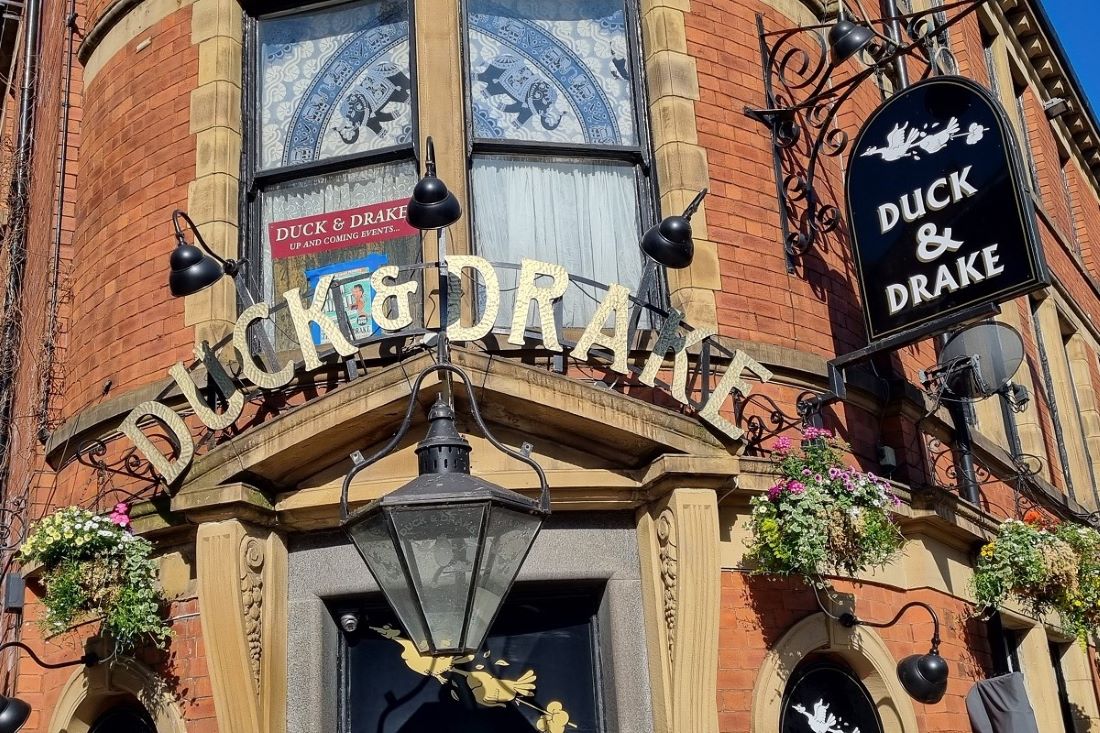
Beer garden
The interior is as warm and welcoming as the exterior, with wooden tables and red décor, comfortable chairs, sepia images, bars adorned with hand-pumps near where you’ll find glass cases packed with pork pies and other snacks.
While the film shows Dave adopting a rock-star persona with a karaoke mike, if you wander into the Duck & Drake of an evening, you’re more likely to hear live music from local bands such as Doghouse or Supercell.
Yet if you drop by on a summer’s afternoon, pick up a beer – we had Theakston’s Old Peculiar on this occasion – and meander through to what guide Mike describes as “Leeds’s best kept beer garden.”
“It’s also the pub in Leeds with the most real ales on draft, with around 15,” adds Mike.
Tables, chairs, patios, plants in porcelain pots and ice buckets, little pergolas and parasols, and other quirks such as the bottom half of a tailor’s mannequin in jeans and boots, as well as greenery and flowering plants, create a secluded drinker’s oasis.
Brewing dynasty
The Duck & Drake is the final stop on our Leeds Beer Tour, having started with a name inextricably linked with drinking in Leeds: Tetley.
For many who live beyond Yorkshire and Leeds, it is a name that is also associated with teabags, though there is little connection between the two dynasties, I am told.
For decades and decades, pints of Tetley bitter have been ordered across bars in the city, and still are, despite the ale no longer brewed in Leeds.
Our starting venue, the last remaining Tetley brewery building, is now a contemporary arts centre known aptly as The Tetley.
The boardroom remains and we clamber up several storeys to a bright and airy wood-panelled room adorned with paintings of William and Joshua Tetley and other generations of this brewing family.
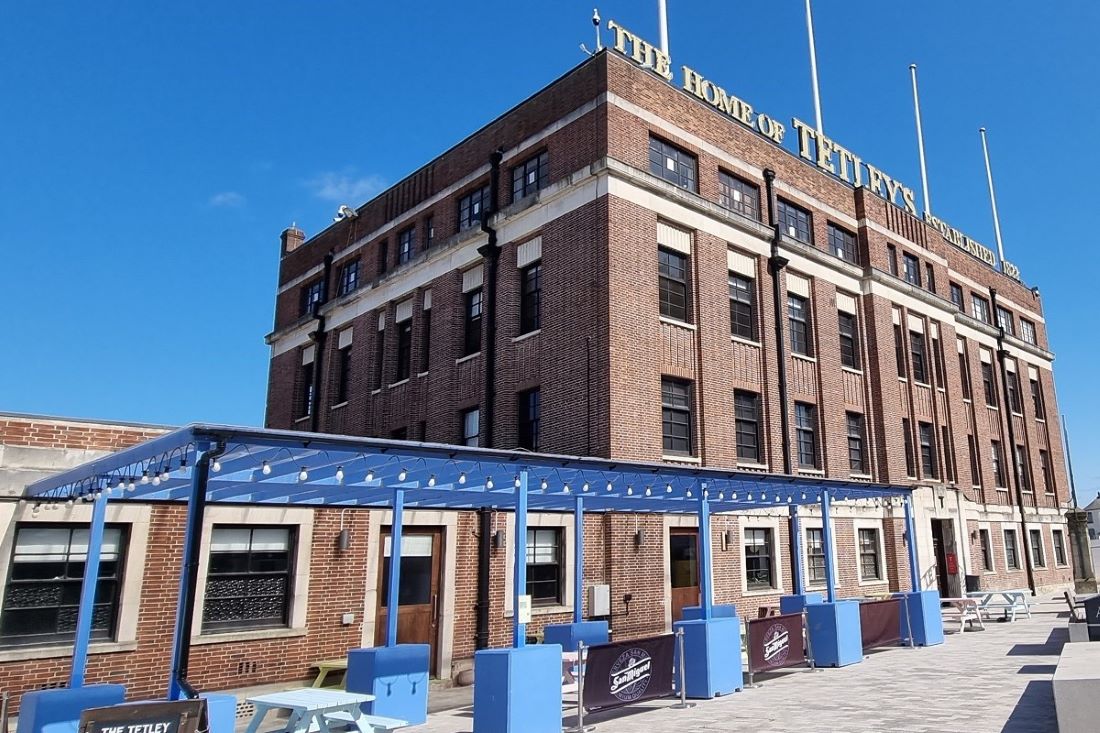
Malting barley
Here, as we enjoy a half of Tetley original cask bitter, we learn something from Mike of the company’s history and the family that made it a Yorkshire brewing legend.
While the brewery opened in 1822 under Joshua Tetley, having taken over the site of Sykes Brewery for the grand sum of £409, the family’s connection with brewing began in 1740 when his grandfather William Tetley ran a malt house producing malting barley for beer use.
Through turbulent times and the changing legislative drinking landscape, as the government of the day tried to wean the nation off gin and onto beer and wine, the malting house business evolved into a brewery, growing throughout the 19th century despite an immensely competitive brewing landscape.
“By 1830, the government had passed legislation that would make beer cheaper and by 1840 there were 45,500 breweries in the UK,” adds Mike.
“Tetley invested in state-of-the-art technology of the day, using steam-powered automation in the second half of the 19th century.”
Vibrant scene
Tetley remained a brewing force well into the 20th century, but its fortunes waned despite mergers and takeovers. The Leeds brewery site finally closed in 2011 with Tetley now brewed elsewhere in the UK.
“But the Leeds brewing scene survived,” explains Mike as we finish our drinks, with Joshua Tetley looking on approvingly. “There are now 25 breweries in the Leeds Metropolitan area, and it is a really vibrant scene.”
The tour moved on to other pubs, such as the Adelphi, which originally opened in 1901 and was a Tetley Heritage Inn.
Not far from the brewery, it has cosy, small rooms, architectural features, and the high-ceilinged smoke room, all pointing to a degree of segregation according to gender and class.
“It is one of the best examples of a Victorian pub in the city,” suggests Mike.
Another popular stop is the Whitelocks’s ale house, which claims to be the oldest public house in Leeds, or the tile fronted Scarbrough Hotel.
A typical beer tour takes about three-and-a-half hours, with either a heritage or craft ale version, with a broad selection of ales to sample along the way.
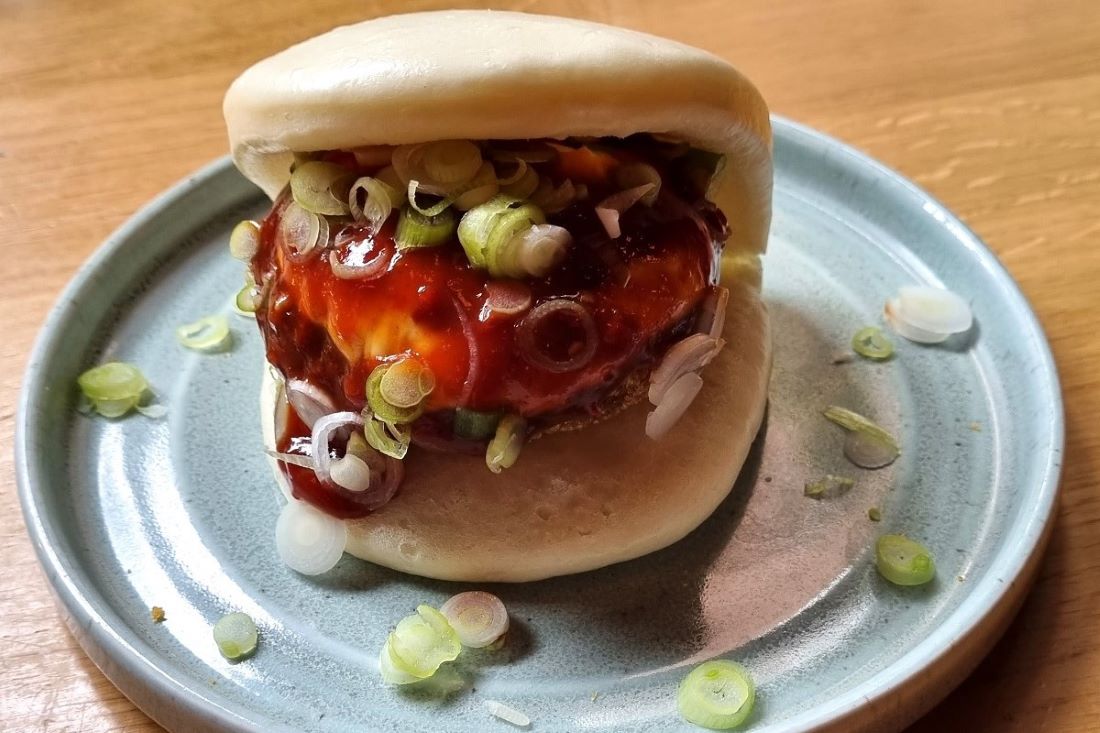
Brunch tour
Walking tours are a wonderful way to see the centre of Leeds: grand Victorian buildings and arcades, bustling markets, architectural heritage, pedestrianised streets, excellent shopping opportunities, and numerous cafés, bars, restaurants, pubs and clubs.
Of course, Leeds has its museums and galleries too, but food and drink was firmly on my agenda and the idea of a “brunch” tour has a particular appeal.
This, I was to discover as we progressed, was a multi-cultural feast on foot, taking in four quite different establishments which showcase the diversity of the cuisine on offer, and added some amazing tastes and flavours as we wandered around for a couple of hours.
Morning flavours
Guiding this mid-morning group was the charming Ellen “you can call me Nell” Miller, who led us into Fish Street and The Empire Café, which also has a cocktail area and a dining area in the former cell downstairs.
We perched at high tables to experience the breakfast menu with a sample of items ranging from sausage and bacon rolls, a vegetarian version of Yorkshire grilled mushrooms in a bap, and a desi breakfast of masala beans, daal or chaana on a chapati or roti bread.
With an open kitchen, cooking on a grill fired with beech and charcoal and rotisserie chickens rotating all day on a spit, the ambience brought us close to the food and the morning flavours of Leeds.
Owner Sam Pullan proudly explains: “We get all our fresh fruit, veg and spices from nearby Kirkgate market, with the meat coming from a farm a few miles outside Leeds.”
He means it when he talks of offering a Yorkshire breakfast.
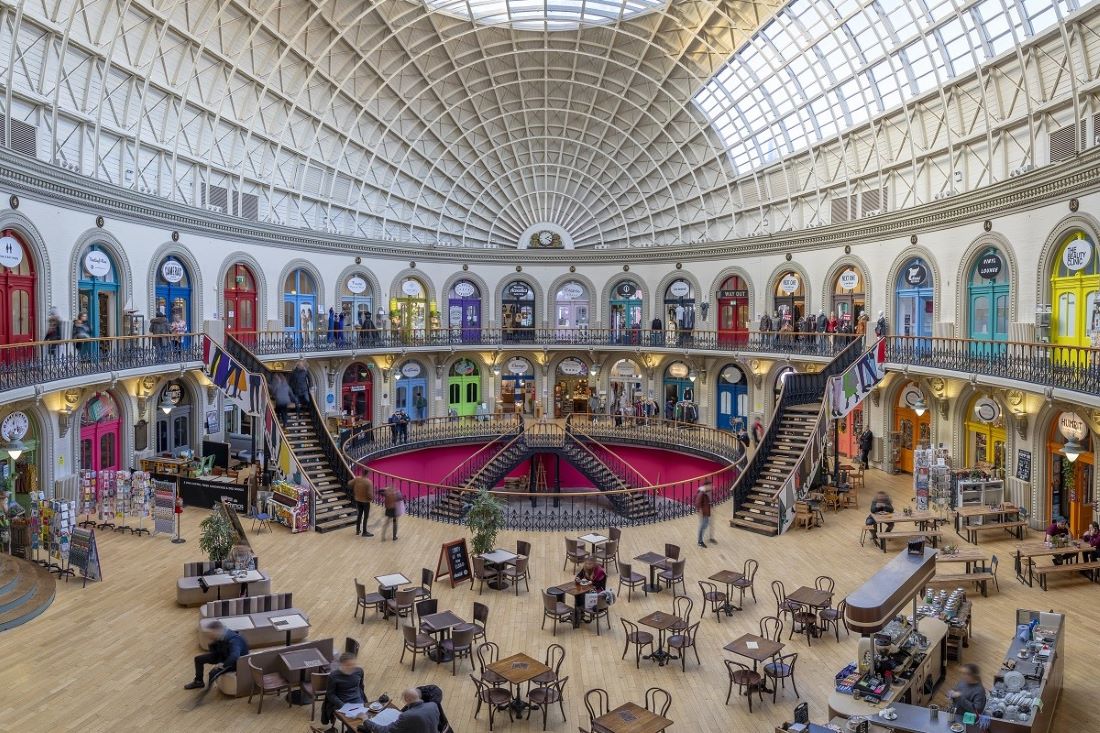
Delicious shakshuka
We tumbled off the high stools and headed to one of the city’s landmark buildings, the Corn Exchange dating from the early 1860s.
Now filled with small shops and cafés on balconies two-storeys high around a central area, we find ourselves at Owt, run by Esther Miglio and husband James.
Nell lets slip “this is my favourite restaurant for lunch” as Esther reveals what she has in store for our brunch: delicious shakshuka (£9.50) of egg and late spring vegetables with French toast infused with orange, sweet with cream and strawberries (£8.95). Who can resist?
The couple started with a market stall in 2018 before moving to the grandeur of the Corn Exchange building.
Kirkgate market
From there, it’s a few steps on to another Leeds must-see, the expanse of the indoor Kirkgate Market.
With wrought iron pillars, wooden facades, quaint historic stalls selling everything a household requires, this is a foodie’s delight highlighted by the natural light drawn into this magnificent setting.
As you enter the majestic market, the aroma of fresh fish from the coast greets you with crab, lobster, cod, haddock, salmon and whelks and other shellfish cascading down the tiers of the stall.
Elsewhere are butchers’ stalls, the sound of a cleaver on wood echoing through the halls as chops are served to customers. Fresh fruit and flowers add a blaze of colour, green vegetables offer another hue and sweet stalls are stacked tempting and high before you find yourself among stalls selling practical household items, buckets and bowls.
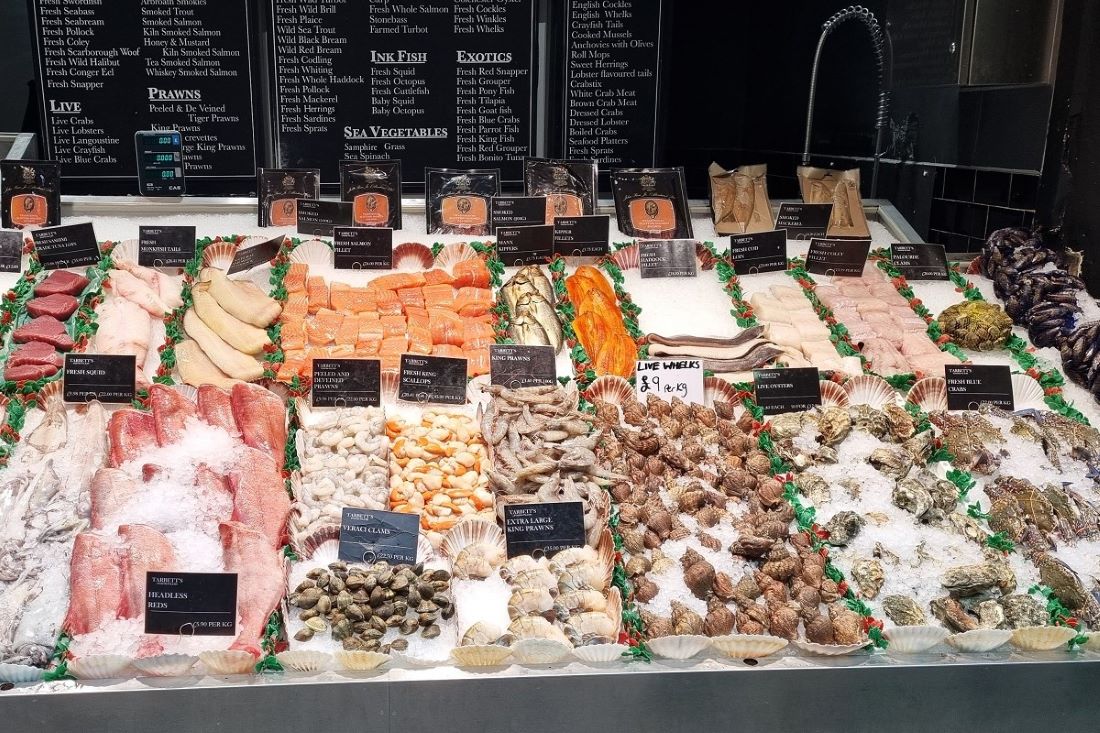
Tunisian brik
While there is a wonderful food hall where you can savour world cuisine, we stopped off at a small stand in the main market, Sweet Saeed, run by Mokhles Bougoffra and specialising in Tunisian cuisine.
We taste the Tunisian brik, a pastry of egg, olives, parsley, capers, cheese, and potatoes, with a choice of chicken, tuna or lamb filling for £4.30. It is, Nell assures us, a very popular brunch/lunch snack.
Small cafés, great restaurants, and pubs greet you at every corner as you leave the market but Call Lane remains the city’s party street with numerous bars including Power, Corruption and Lies which opens early and closes late.
Unbridled enthusiasm
It’s almost noon when we pop in for Pan-Asian small plates, opting for the delicious breakfast katsu of panko ham hock, soy egg yolk, kewpie mayo and tonkatsu in a steamed bao bun (£7).
What a way to round off a brunch tour, with the walk thankfully going some way toward setting off the calorific intake of the delicious cuisine.
What emerges as you wander from one eatery to another is the intimacy of these venues and the freshness of the food, coupled with the unbridled enthusiasm and pride the owners have for the cuisine that they serve.
One thing is certain, you’ll never go hungry – or thirsty – in Leeds with such diverse food and drink to savour.
Factbox:
The beer and food tours take in pubs, independent eateries and city landmarks with beer and food included. Self-guided tours are also available. For more information visit www.leedsbeertours.co.uk) – heritage beer tour (£38), craft beer tour (£50); and Leeds Food Tours (www.leedsfoodtours.com) with guided food tours covering six independent eateries (£65). For more information on Leeds visit: www.visitleeds.co.uk and click here for information on further walking, sightseeing and heritage tours.
Mark Nicholls is an award-winning freelance travel writer and author, based in the UK and has written for a range of national titles, specialist magazines and international websites and operated as a war correspondent in locations such as Iraq and Afghanistan.
Photographs by Mark Nicholls and Visit Leeds


Be the first to comment